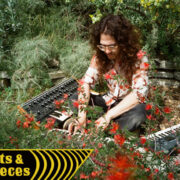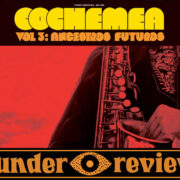Sessa 

connection to local folk forms, while following in the footsteps of his Tropicália forefathers to fold in influences from across the musical landscape. While Sessa’s previous albums haven’t been exactly sparse, they feel slightly austere compared to the pulse and panorama of Pequena Vertigem de Amor. Incorporating a touch of ‘70s funk, a good dose of cinematic scope, and his usual flair with velveteen vocal work, the new album invites the listener into an entrancing world. Scented with smoke and sea air, the new record feels at home in the plush environs of the past. Swooning strings wrap themselves around several tracks here, practically begging for the listener to cue the record up on a reel to reel hi-fi built into the wall.
Beyond the mahogany and leather luxuries of the album, Sayeg’s songwriting is as strong as it’s ever been, a subtly celebratory mix that ruminates on the quirks and ambiguities that keep life interesting. Amid the string swells, there’s a greater focus on piano this time around, and a propulsive patter of percussion that adds to the album’s lilting funk. Sax is threaded through a few tracks in soft stitches, a cottony cocoon that adds to the album’s aura. Tellingly, Sayeg cites Erasmos Carlos’ album Sonhos e Memorias 1941-1972 as one of the most primary influences, and its fingerprints can be found all over Pequena Vertigem de Amor. The album has enjoyed a modern day renaissance thanks to a Light in the Attic reissue, and Sessa has crafted a complimentary cousin to Carlos’ ‘70s treasure. It’s often been easy to melt into Sessa’s works, but this bursts from the background and dances around the room, a partner in joy, a companion in solitude.
Support the artist. Buy it HERE.








